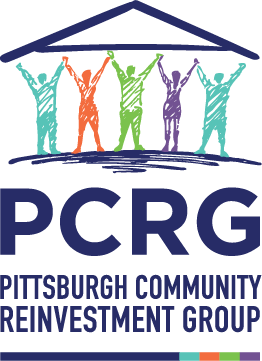On April 11, 1968, former President Lyndon B. Johnson signed the Fair Housing Act, the civil rights law that made discrimination in housing transactions illegal. Specifically, the Fair Housing Act prohibits discrimination in housing based on race, national origin, religion, sex, gender identity, disability, and family status. While we’ve come a long way in combating fair housing violations in the 56 years since the law’s enactment, we still have a way to go in battling discrimination.
My work with PCRG intersects with Fair Housing principles every day. We advocate for communities to receive equal access to homeownership opportunities, which is essential for addressing systematic housing disparities and advancing Fair Housing goals.
It is imperative that we expand Fair Housing for communities to have more affordable housing. In light of that, I thought it important to highlight some of the local efforts and work to promote Fair Housing policies, as well as provide resources for community members for National Fair Housing month.
Fair Housing laws aim to create inclusive communities and promote diversity and equality in housing markets. They promote equal access to housing opportunities and helps prevent discrimination and segregation, as everyone has the right to live in a safe and secure environment regardless of their background. Though not directly a Fair Housing issue, but rather linked to broader housing justice and access to fair treatment in the housing system, is the Tenants Right to Counsel movement. A priority of our partners at the Pittsburgh Housing Justice table, we are calling for a Tenant Right to Counsel to protect renters and provide tenants with free legal counseling services during eviction cases. While Fair Housing laws primarily address discrimination in housing practices, ensuring access to legal representation in eviction cases can help prevent unjust evictions, particularly for marginalized and vulnerable populations who may face discrimination or unfair treatment during the eviction process. The right to counsel in eviction cases is an important aspect of promoting housing fairness.
Appraisal bias is also considered a direct Fair Housing issue and something that PCRG actively tracks throughout the region. When housing appraisals are biased, they can undervalue properties in certain neighborhoods, disproportionally affecting minority communities. This can lead to disparities in access to credit, housing affordability and overall wealth building. Appraisal bias contributes to systematic inequalities in housing and can perpetuate segregation and discrimination. Addressing and mitigating appraisal bias is an important aspect of promoting Fair Housing and ensuring equal opportunities for all individuals and communities.
To make progress on Fair Housing goals, PCRG believes that local and state governments, as well as public housing agencies need to take further steps to overcome segregation, promote fair housing choice and opportunities, and foster inclusive communities free from discrimination to protected classes. In fact, if local governments don’t meet fair housing goals, they can lose federal housing funding. Around this time last year, PCRG provided public comment to the federal government on Affirmatively Furthering Fair Housing. We specifically called for increased technical assistance for local governments that further promote fair housing.
Lastly, increasing the supply of affordable housing is a crucial aspect of Fair Housing efforts. Access to affordable housing is fundamental to ensuring that individuals and families, regardless of background, can live in safe and decent housing. A lack of units can perpetuate housing discrimination and exacerbate housing inequalities, as marginalized and low-income communities often face the greatest barriers to access affordable housing.
By increasing the supply of affordable housing, policy makers and advocates can work towards promoting Fair Housing principles, reducing housing disparities and fostering communities where everyone can secure stable and affordable housing.
Resources:
For more information on Fair Housing Month, visit the HUD Office of Fair Housing and Equal Opportunity
For background, resources and information (including filing a complaint) on your rights living discrimination free, visit the Pennsylvania Human Relations Commission
If you live in the City of Pittsburgh, the independent Commission on Human Relations can investigate civil rights violations within the city limits, including housing protections.


